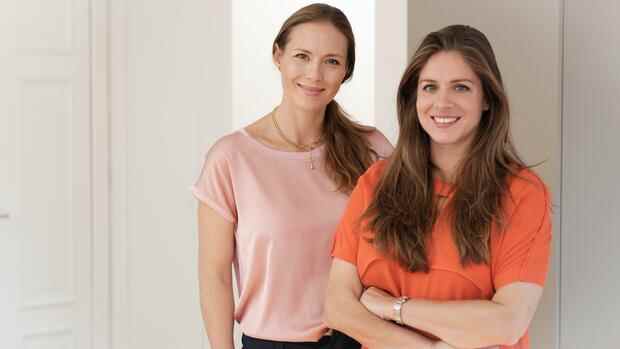Dusseldorf Elisa Hertzler has come one step closer to her vision of being able to offer digital continuing education content quickly and easily throughout Europe. Not only because the founder has only just raised three million euros for her AI-based learning platform Peers. But also because she was able to expand her network through two of her investors.
“Gesa Miczaika and Bettine Schmitz helped me get in touch with other investors,” says Hertzler. “Now you are helping me find a board member with expertise in software.”
However, part of the three million euros also comes from Miczaika and Schmitz. The founders of the holding company Auxxo have the Female Catalyst Fund set up, Germany’s first venture capital fund aimed exclusively at female start-ups. Mixed teams get money if women hold at least 20 percent of the founding shares.
So far, 15 million euros have been collected for the fund – primarily from donors. Tina Müller, head of Douglas, investor Verena Pausder, Irish serial founder Emma Tracey and venture capitalists such as HV Capital and Cherry Ventures have joined them.
Top jobs of the day
Find the best jobs now and
be notified by email.
All male teams are excluded from their investments. This is a conscious decision, says Miczaika: “The problem is that the committees of most venture capital funds are very male-dominated.” In the scene, she noticed that men tend to promote male teams, while female founders are often overlooked and less often they come to venture capital .
“We are just one piece of the puzzle in the entire shareholder circle,” adds the investor. “If we mix it up now, the quota of women in the entire ownership structure will remain low.”
The proportion of female founders is growing only slowly
Current studies reinforce the picture. According to a study by PwC and the Federal Association of German Start-ups, the proportion of female founders rose from 15.9 to 17.7 percent last year. However, the analysis also shows that between 2017 and 2020 the proportion stagnated between 14 and 16 percent.
The current Female Founders Monitor again shows that five percent of female founders have raised more than one million euros in funding so far, while the figure for men’s teams is 30 percent.
In order to make the scene more diverse, Miczaika and Schmitz rely on co-investments in their strategy, which they make in female or mixed teams. “We go into good deals with other venture capitalists,” says Gesa Miczaika. In this way, they would be able to connect the selected start-ups directly with other larger lead investors.
Mathematician Schmitz and economist Miczaika have gained experience with 14 start-up deals through Auxxo, which was founded in 2018. Schmitz was previously an investor in the Alex Springer Plug & Play Accelerator, while Miczaika was active as an independent digital consultant at the Boston Consulting Group.
Start-ups need potential for venture capital
But a female founding team alone is not enough to receive money from the Female Catalyst Fund. As investor Miczaika says, the idea must have venture capital potential. That applies to Elisa Hertzler’s start-up. Your digital learning platform runs with an algorithm and offers compiled learning content for employees who need or want to continue their education.
“The AI determines the learning needs in companies based on the skills of the employees and then puts together a program,” she explains. The learning content comes from partners such as TÜV and Haufe Akademie and Cornelsen.
Elisa Hertzler was one of the first founders to be supported by the Female Catalyst Fund for her start-up.
(Photo: Jendrik Schröder)
“From our point of view, you can position yourself right at the front of the job market with the platform,” says Miczaika, “like a Booking.com for further training.” A total of six start-ups have already received money from the fund. These include Women Cycles, a video platform for health issues for women, and a start-up in the green chemistry sector that produces copycat drugs in an environmentally friendly manner.
Some other initiatives, such as Encourageventures, also want to create more gender parity in the start-up world. 60 women from business have come together in the association, including Ina Schlie, former manager at SAP, and Ana-Cristina Grohnert, chairwoman of the Diversity Charter. You also support start-ups in the early phases with at least one woman on the team, both financially and with coaching.
Tina Müller, who is also involved in Encourageventures, has taken part in the Female Catalyst Fund out of conviction: “As long as the economy is still in difficulties when it comes to the numbers, it is worth getting involved.”
But if Miczaika and Schmitz’s plan works and the venture capital scene becomes more feminine, they can imagine adding a man to the team. “Studies show that various teams are better,” says Miczaika. “We see that, and of course we want that too.”
More: Why prominent founders and family entrepreneurs are all investing in this venture capitalist
